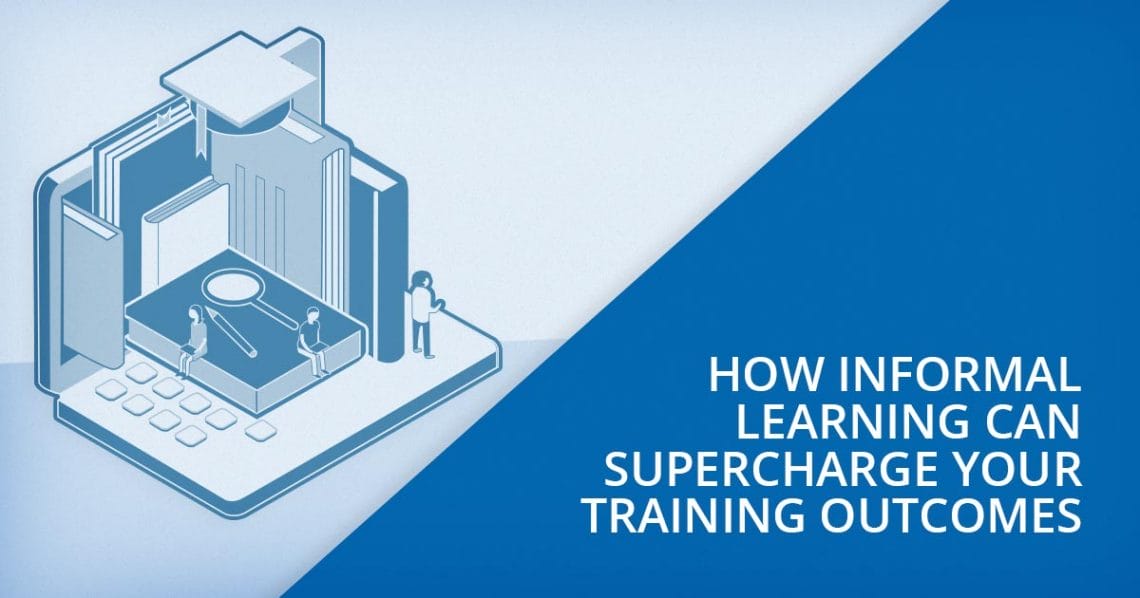
3 Reasons You Shouldn’t Leave Informal Learning to Chance
Even more so than with social learning, informal learning in the workplace is typically where the bulk of knowledge is absorbed. That’s in contrast to the kind of formal learning that’s typically delivered via workshops, event-based training, and structured online training plans. So why don’t most companies bother measuring the kind of day-to-day knowledge exchange that makes up the ‘70’ in the 70:20:10 learning model?
While there will always be a time and a place for these formal, structured learning modalities (you probably can’t host your next learning project on the office Slack — or can you?), so much of learning happens during those one-off water cooler conversations and browsing your favorite professional development blogs that, as a learning technology company, we’d be remiss to not help companies build a home for that knowledge on the learning management system for all to access, share and remark on.
We see the concept of integrating an informal learning strategy with your learning management system, but there’s an argument to be made that informal learning should be enabled and encouraged, but allowed to occur naturally. The truth is that your people will learn from each other via social channels and day-to-day conversations, but there’s no reason to leave informal learning up to chance.
Bottom line: Your people are already learning informally at work, so there’s no reason you shouldn’t foster a home for this kind of knowledge transfer on your company’s online training platform for all to access. Here’s why:
Informal learning supports the distribution of timely information
Keep every team up to date on the latest product news and updates, even the little events (like feature enhancements, or minor policy changes) that wouldn’t make it into traditional training or retraining programs. You can also provide a home for articles, documents and files to begin building a sophisticated knowledge library (think of it as your company Wiki) that would normally be thumbed through or browsed once, then discarded. Never lose that gem of an article again! Instead, make it available for your colleagues to read, comment on and share.
Informal learning is how people absorb most of the knowledge they use at work
Think of the top three most important tasks or deliverables to your job performance. How did you acquire the knowledge and either develop or learn the processes to reach your objective for each? If you’re like most people, learning by doing is an everyday reality. Some formal courses offer structured step-by-step guides, but with each task come nuances due to technology inconsistencies, training strategy and the realistic differences between reading a manual and finally getting behind the steering wheel.
Informal learning can become the gateway to greater knowledge access and retention
We know that, particularly in employee onboarding scenarios, learner engagement breeds retention and, ultimately, a longer (and happier!) employment relationship.
By supporting the more casual aspects of employee training — the informal nuances about the product or service that, as mentioned earlier, may not always make it into your SCORM package — you’ll not only increase the amount of information available to your people, but you’ll almost certainly increase the interest level.
This is particularly true with the kind of bite-sized chunks of information that can be captured and uploaded from, say, a sales team leader in the field when he encounters a new use case or challenge.
See for yourself how Docebo supports informal and social learning at the point of need with the advent of Coach and Share, a powerful new module that works in concert with the LMS to connect subject matter experts and learners with the best informal training content.
